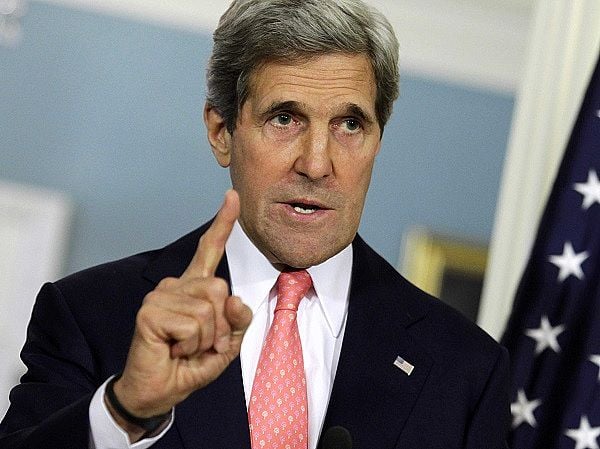
Developments in the Palestinian-Israeli arena over the past few weeks have moved dazzlingly fast. Almost every 24 hour period saw a different story in the headlines: Kerry’s apartheid (the “A-word”) comments, the Fatah-Hamas unity deal, Abbas’s public condemnation of the Holocaust, ‘price tag’ attacks against Israeli-Arabs inside Israel, and of course the breakdown of negotiations.
It is this last issue that is perhaps the most significant. Why did the talks collapse? There are many reasons for their failure, but one has become particularly glaring: apathy rules the day. Neither the Palestinian nor Israeli leaderships feel a sense of urgency to reach a negotiated two-state solution.
On the Palestinian side, Mahmoud Abbas must have known that uniting with Hamas would make it impossible, at least for the foreseeable future, for Israel to conduct negotiations with him and his Palestinian Authority. If Abbas was desperate to reach an agreement on a two-state solution, or even just to extend the talks, he would not have made this move. The question of whether or not Abbas would ever sign an official agreement that recognizes Israel’s existence and declares the conflict over remains up in the air. He may be more interested in making moves that placate the Palestinian street and allow him to avoid getting the pen in his hand in the first place (to sign a deal). Abbas may be tactically moderate and personally willing to sign such an agreement, but at the same time he may realize it is not worth risking his political suicide.
Abbas could have also decided to pursue cajoling the Israeli public into pushing Netanyahu to reach an agreement. He could have set up another meeting with Zehava Gal-On, the leader of the left-wing Israeli Meretz party, and hammered out an agreement much more suited to his taste. They could have then jointly presented the deal, which would include a provision mandating that the Palestinians declare the conflict over once the agreement has been implemented. This would have been unprecedented, yet it is conceivable. But it is clear that Abbas and his team were not willing to take these sort of creative risks in order to reach a negotiated two-state solution.
The Israeli side certainly showed its apathy as well. A great piece was written by Nahum Barnea for Ynetnews.com, the English version of the Israeli newspaper Yediot Ahronot. Most of the article is a published interview with unnamed senior American officials about the collapse of the peace talks. The officials reveal compelling evidence that Netanyahu and the Israeli negotiating team (save for Tzipi Livni) was unwilling to move more than “an inch” on many decisive issues. For instance, Netanyahu did not even respond to an American map that proposed a border with the future Palestinian state that would allow 80 percent of all Israeli settlers to remain in their homes. This is in stark contrast to Abbas, who not only agreed to the map, but also to a demilitarized Palestinian state, Israel retaining Jewish neighborhoods in East Jerusalem and a United States takeover of security responsibilities in the Jordan Valley after a transitional period, which Israel refused.
Netanyahu and Israel’s negotiators — again, save for Tzipi Livni — had no sense of urgency. They wanted a two-state solution that sticks almost entirely to Israel’s starting demands: retention of the Jordan Valley under Israeli control, no substantive Palestinian capital in East Jerusalem, nearly no settlements dismantled and almost no settlers removed from their homes. Since they were not desperate, they did not budge much on these issues. The current Israeli government sees the status quo as far better than what might happen were a two-state solution reached that does not include almost everything it wants.
Both sides could have taken steps that would have displayed a sincere desire to reach a negotiated two-state solution in the near future. But apathy prevailed.